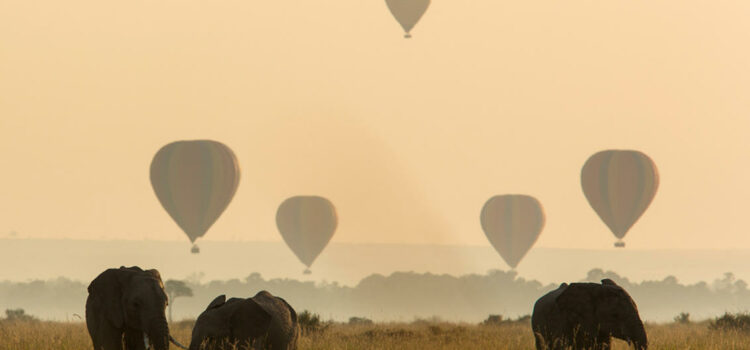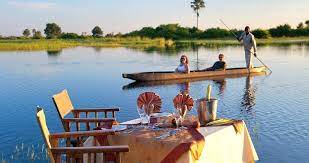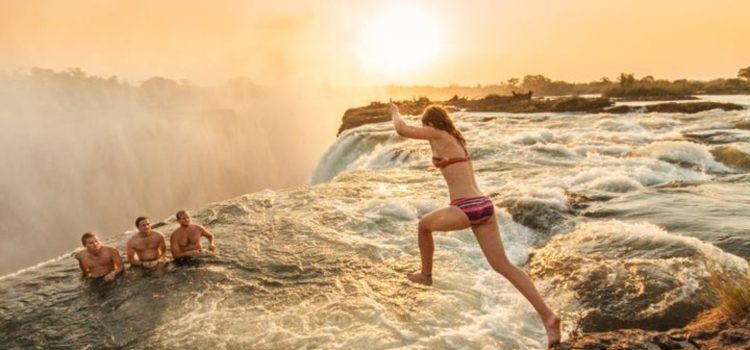Drone!
The word is on just about everyone’s lips, and they are apparently just about everywhere … but should they be in the bush, on safari and used in conservation efforts ?
Before considering where they should and shouldn’t be allowed, lets consider what they are.
Drones are nothing new, it is simply an unmanned aircraft, which, dating back to the 1930’s, was originally used to assist the military.
Today’s drones are however no longer only operated by the military as smaller versions are used for various purposes (by individuals and companies), amongst other, to film documentaries and newsworthy happenings in dangerous or inaccessible places.
As technology has advanced, and as drones have become increasingly smaller and smaller, so proportionately it would seem, has their popularity with the man on the street has grown bigger and bigger.
The relative decrease in cost and the ease with which drones are available for purchase has lead to an upsurge in their popularity, and in turn, an increasing number of visitors who would like to bring their shiny new toy to the African bush on safari to use as their very own wildlife drone.
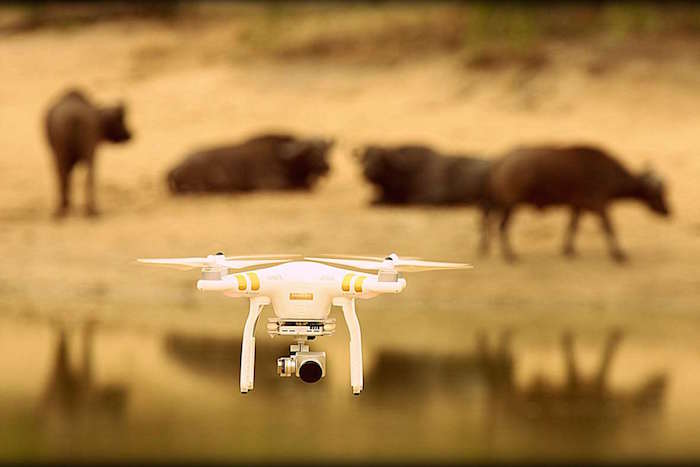
This unquestionably raises a number of issues when considering drones in conservation areas – a contentious subject – as an unmanned-camera-carrying-mini-helicopter may very well be able to snap the perfect shot, BUT what about the impact on fellow safari-goers and, most importantly, the actual wildlife itself?
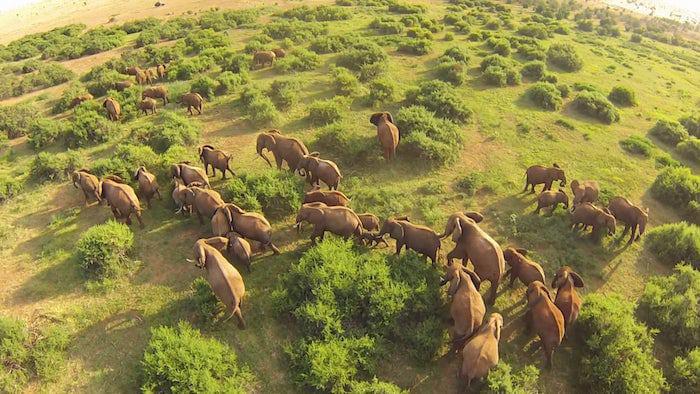
In addition to the possibility of actual poor drone piloting (which in itself holds risks), three main areas of contention immediately spring to mind –
* Upsetting wild animals
* Disturbing fellow guests
* Jeopardizing conservation and anti-poaching efforts
Drones make a noise, the introduction of which into a wilderness area most certainly negatively impacts and disrupts resident wildlife.
The persistent buzzing of a drone differs from the ‘temporary’ noise of a helicopter passing by above or that of the transitory engine of a game vehicle trundling by, the latter which can always be stilled.
Although conservation drones have seen successful projects, the intrusion of drones in conservation areas is inconsistent with the ethics of wildlife preservation – drones definitely disturb the authentic experience of nature and animals that said drones are ironically trying to capture and immortalise whilst hovering overhead.
As well as upsetting wildlife, drone noise and presence adversely affect other guests on safari, all similarly trying to appreciate their own personal wilderness experience.
For visitors who have traveled vast distances to be in Southern Africa, and who have invested large sums of money to enjoy an authentic safari holiday experiencing nature at it’s finest, drones on a safari are at best as bad as loud annoying guests in another vehicle, at worst highly disruptive and downright selfish.
As one seasoned game ranger cited, ‘using a drone actually comes down to deliberately disturbing the animal(s). Or to be precise; if you move your drone close enough for good footage, there’s almost a 100% guarantee that the animal(s) will react, often spoiling the sighting.
Obviously a guide doesn’t like that, the people in his vehicle don’t like it, and even the lodge owner doesn’t (as he’s afraid the animals will move out of his concession)’.
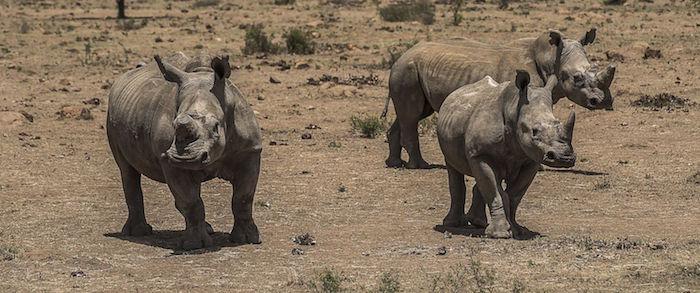
In terms of conservation efforts, drones are also bad news.
There is no control over what images or film are captured, and equally, no control over where and how this imagery is distributed.
There is a very real probability that sensitive footage, giving away sensitive GPS locations could fall into the wrong hands.
This is in direct contravention of current rigorous anti-poaching undertakings and stringent conservation efforts, and for obvious reasons should be avoided at all costs.
But what are the actual safari operators and conservation companies saying. Two leaders in the industry commented thus –
Grant Woodrow of Wilderness Safaris,
‘As leaders in the African ecotourism industry, we are often looked to in terms of ethics and operational principles. We take this responsibility seriously and in the case of unmanned aerial vehicles being used for wildlife photography, we have decided to prohibit this activity on our concessions in Botswana, Namibia, South Africa, Zambia and Zimbabwe’.
Walter Smith of Desert & Delta Safaris,
‘For individual photographers and amateur photography. Our policy on drone flying within the areas that we operate in will mirror those of the Botswana Government. Desert & Delta Safaris will not assist or encourage guests to bring their own drones when travelling to our destinations’.
Whilst there may very well be some safari companies and game reserves who do allow drones to operate in their own particular areas (to make an aerial video of their lodges for example),the general gist of the debate is to ‘leave the drone at home’ and to enjoy the safari experience more intimately and directly – without disturbing the peace of the animals, the peace of the bush, and the experience and privacy of fellow safari-goers.
